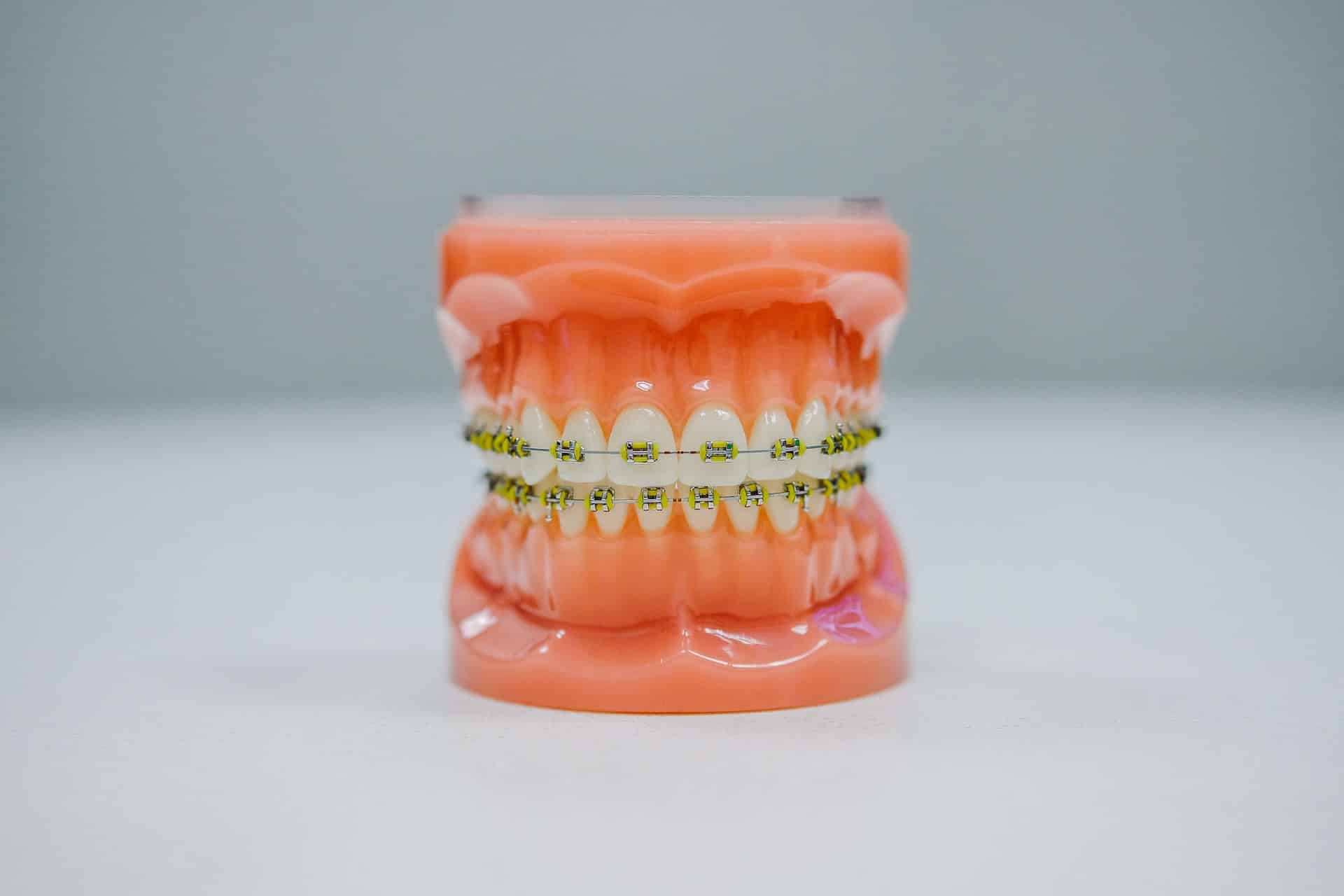Braces treatment comes in handy when you want to correct the alignment of crooked teeth or a bad bite. And while braces are effective in doing so, they come with a set of maintenance and care requirements. One of the things you need to be aware of is the list of foods to avoid with braces so you can have a smooth and successful orthodontic experience.
Here at Bracesetters Orthodontics, we’ve been helping folks like you achieve beautiful smiles across our four New York locations for many years. In this comprehensive guide from our orthodontic experts, we’ll walk you through the kinds of foods you should steer clear of to ensure your orthodontic journey goes off without a hitch. Whether you’re in MIDDLETOWN, NEWBURGH, MONROE, or MONTICELLO, our team at Bracesetters is here to help you get the most out of your orthodontic treatment, and your diet is a key part of that equation.
Types of Foods to Avoid with Braces

1. Sticky and Chewy Foods
Sticky and chewy foods can be the nemesis of braces. They tend to get stuck in the brackets and wires, making it challenging to clean and increasing the risk of damage. Some examples of sticky and chewy foods to steer clear of include:
- Caramels
- Taffy
- Chewing gum
Avoiding these foods will help prevent discomfort and complications with your braces.
2. Hard and Crunchy Foods
Crunching on hard and crunchy foods may be tempting, but it can be detrimental to your braces. These foods can exert excessive force on your brackets and wires, potentially leading to breakages or misalignments. The foods to avoid with braces include:
- Popcorn
- Nuts
- Ice
By steering clear of these items, you can maintain the integrity of your braces, allowing them to work effectively.
3. Sugary and Acidic Foods
Sugary and acidic foods are not only detrimental to your overall oral health but can also pose challenges during braces treatment. These foods can contribute to tooth decay and create an environment where cavities may develop more easily. The sugary and acidic foods to avoid with braces include:
- Soda
- Candy
- Citrus fruits
Taking care to minimize your consumption of sugary and acidic items can help protect your teeth and braces.
4. Foods that Stain
While it’s essential to focus on what you shouldn’t eat, it’s also crucial to consider foods that can stain your teeth and braces. Stains can be particularly noticeable with braces, affecting the appearance of your smile. Be cautious with these staining foods to avoid with braces:
- Coffee
- Tea
- Berries
Maintaining a white and aesthetically pleasing smile is a goal during orthodontic treatment, and we’ll provide you with tips on keeping your braces and teeth stain-free.
The Consequences of Ignoring Dietary Guidelines
While the occasional slip-up might not spell disaster, consistently consuming problematic foods can lead to several issues, such as:
1. Slower Progress
Orthodontic treatment with braces relies on a carefully planned series of adjustments to shift your teeth into their desired positions. Consuming off-limits foods can lead to frequent issues like broken brackets or wires, which can result in treatment delays. Your orthodontist at Bracesetters designs your treatment plan to achieve the best results in the shortest possible time. Ignoring dietary guidelines can extend your treatment duration.
2. Discomfort and Pain
Eating foods that are too hard or sticky can increase the chances of damage to your braces, leading to discomfort or even pain. Broken brackets or wires can poke and irritate your cheeks, lips, and tongue. By following dietary advice and making sure your braces are in good condition, you can prevent this discomfort.
3. Oral Health Problems
Sugary and acidic foods, when consumed frequently, can contribute to tooth decay and cavities. Maintaining proper oral hygiene is crucial during orthodontic treatment, and neglecting it can lead to oral health issues that may require additional interventions and impact the overall success of your treatment.
4. Increased Costs
While the primary goal of orthodontic treatment is to achieve a beautiful and functional smile, ignoring dietary guidelines can lead to unexpected costs. Repairs and replacements for damaged brace components can add up over time. Sticking to a braces-friendly diet helps you avoid these additional expenses.
Eating Safely with Braces
 1. Embrace Braces-Friendly Food Options
1. Embrace Braces-Friendly Food Options
There’s no need to worry about feeling limited by the list of foods to avoid with braces. Bracesetters Orthodontics encourages you to enjoy a variety of braces-friendly foods that are safe for your orthodontic appliances. These include:
- Soft fruits and vegetables, like bananas, cooked carrots, and applesauce
- Dairy products, such as yogurt and pudding
- Lean proteins like fish, eggs, and tofu
- Soft grains and pasta
- Smoothies and milkshakes
These options are not only safe for your braces but also nutritious, ensuring that you maintain your overall health during your orthodontic journey.
2. Practice Proper Chewing Techniques
When you have braces, it’s important to adjust your chewing techniques to prevent damage. Instead of biting into hard foods with your front teeth, cut them into smaller, manageable pieces and chew with your back teeth. This reduces the risk of bracket or wire damage.
3. Stay Hydrated with Water
Water is your best friend when you have braces. It not only keeps you hydrated but also helps wash away food particles that may get stuck in your braces. Carry a water bottle with you and take sips throughout the day.
4. Carry a Braces Care Kit
Consider carrying a small braces care kit with you, including a travel toothbrush, toothpaste, and dental floss. This allows you to clean your teeth and braces after meals, reducing the chances of food debris causing problems.
5. Follow Oral Hygiene Guidelines
Maintaining excellent oral hygiene is crucial when you have braces. Brush your teeth after every meal and floss daily to remove any food particles and plaque. Our team at Bracesetters can provide you with tips and techniques for effective cleaning during your appointments.
Regular Orthodontic Check-ups
To ensure the effectiveness and safety of your orthodontic treatment with braces, it’s crucial to schedule and attend regular check-ups with your orthodontist. These appointments are essential for monitoring your progress, making necessary adjustments, and addressing any concerns that may arise during your treatment. Here’s why regular orthodontic check-ups are so important:
1. Progress Monitoring
During your regular check-ups at Bracesetters Orthodontics, our experienced orthodontic team will assess how your teeth are moving and whether your treatment plan is on track. Adjustments may be made to your braces to ensure that your teeth continue to shift into their desired positions.
2. Problem Detection and Prevention
Regular check-ups allow us to detect and address any issues promptly. This includes identifying early signs of problems like broken brackets or wires, loose bands, or other concerns that can impact your treatment progress. By addressing these issues early, we can prevent more significant complications and discomfort.
3. Guidance and Support
Your orthodontist will provide you with guidance on maintaining proper oral hygiene and dietary habits to support your braces treatment. We’ll answer any questions you have and offer solutions, just like foods to avoid with braces, for common challenges you may encounter during your orthodontic journey.
4. Personalized Care
At Bracesetters, we pride ourselves on providing personalized and holistic orthodontic care. Your regular check-ups allow us to tailor our approach to your specific needs, ensuring that your treatment plan is aligned with your goals and preferences.
5. Comfort and Confidence
Regular orthodontic check-ups not only keep your treatment on track but also provide you with peace of mind. Knowing that you’re receiving expert care and attention from our skilled team at Bracesetters can boost your confidence and comfort throughout your orthodontic journey.
We strongly encourage you to maintain your scheduled appointments with our orthodontic experts, no matter which of our New York locations you visit. These check-ups are a fundamental part of your braces journey and play a significant role in helping you achieve a beautiful and functional smile.
Get the Best Braces Treatment from the Best Orthodontists in New York
If you’re looking to get your teeth aligned for better function and oral health, Bracesetters Orthodontics is your partner in providing an effective yet comfortable treatment journey. We are honored to be recognized as the BEST ORTHODONTISTS in the Hudson Valley and consistently ranked as TOP DENTISTS in the orthodontics category by our peers. We are available to accommodate your needs at any one of our offices in New York:
MIDDLETOWN
- NEWBURGH
- MONROE
- MONTICELLO
Our orthodontists, Dr. Michael Skrobola, Dr. Jonathan B. Schlosser, and Dr. Mike Skrobola III, are ready to welcome you to be part of our orthodontic family. Book a consultation today and discover the best treatment plan that can get you the smile you’ll be proud to show more often.

 1. Embrace Braces-Friendly Food Options
1. Embrace Braces-Friendly Food Options MIDDLETOWN
MIDDLETOWN